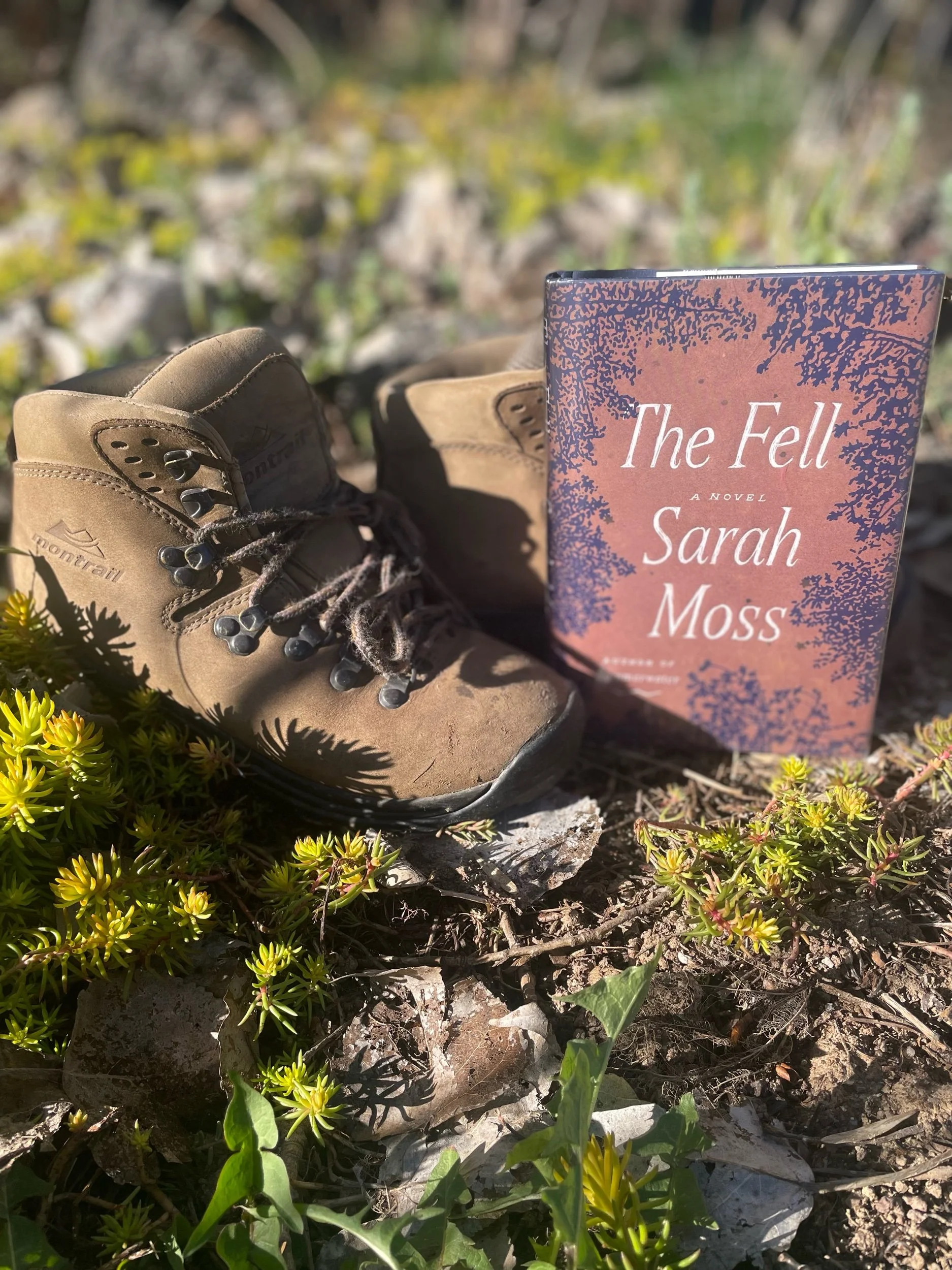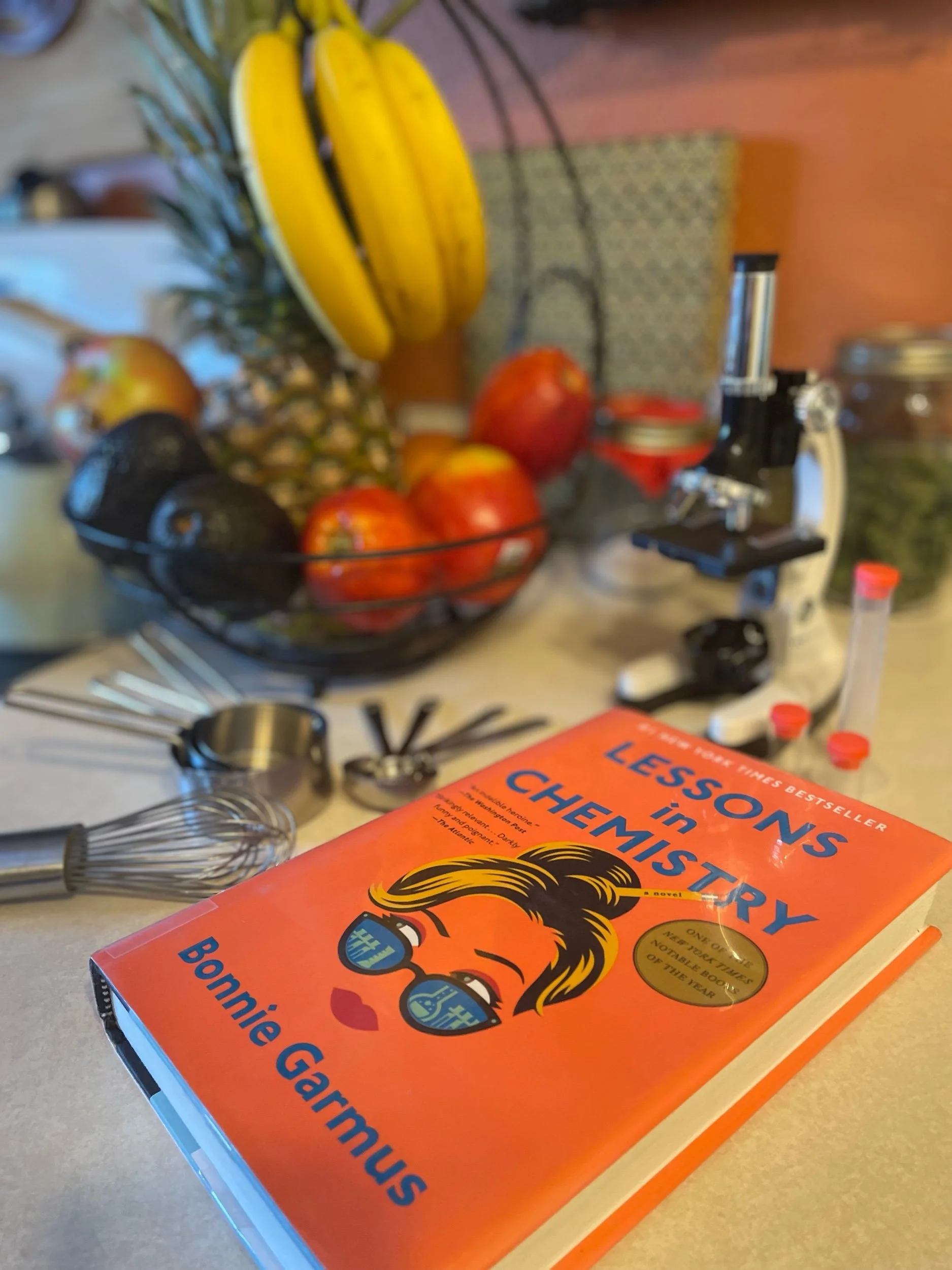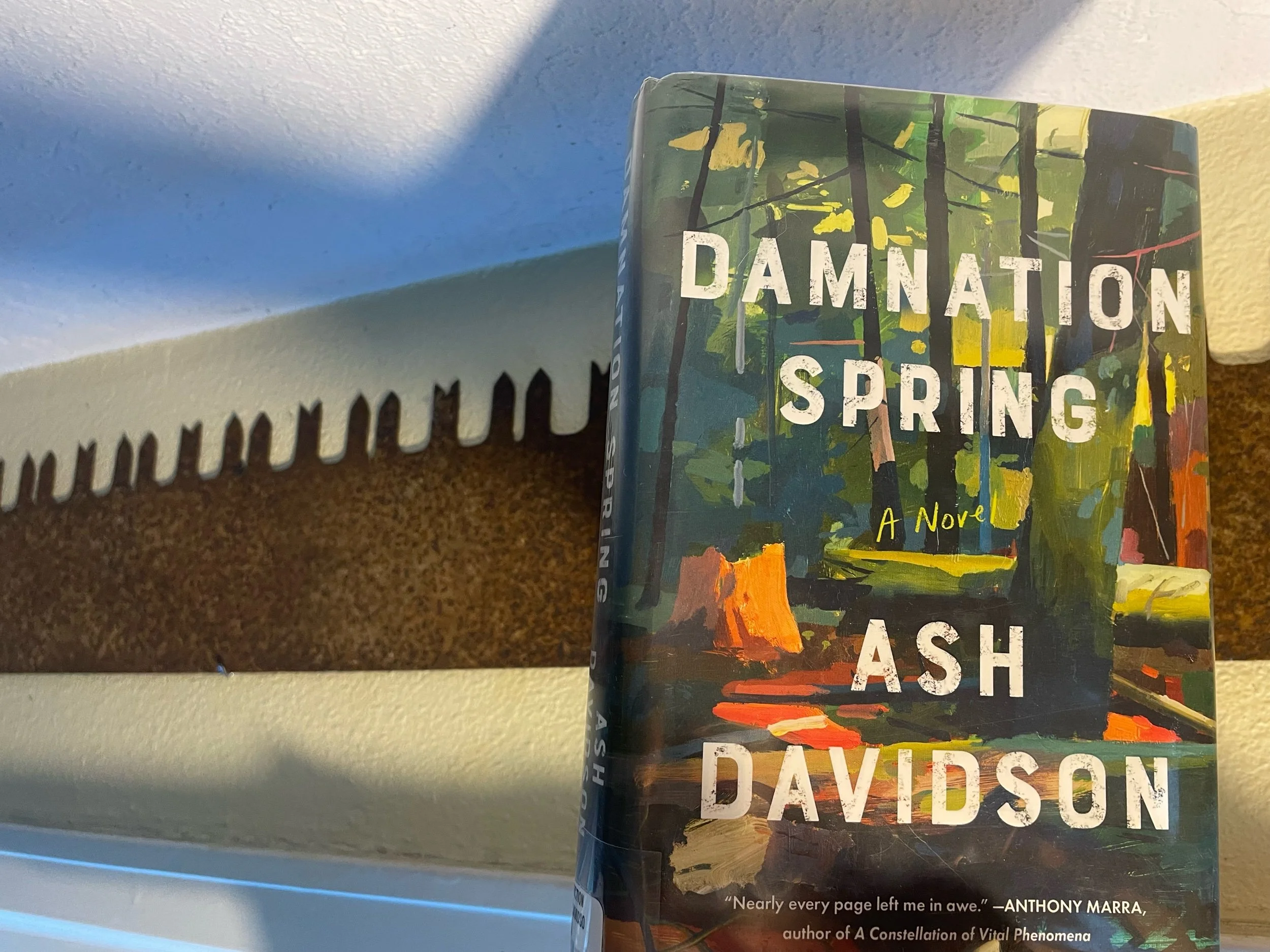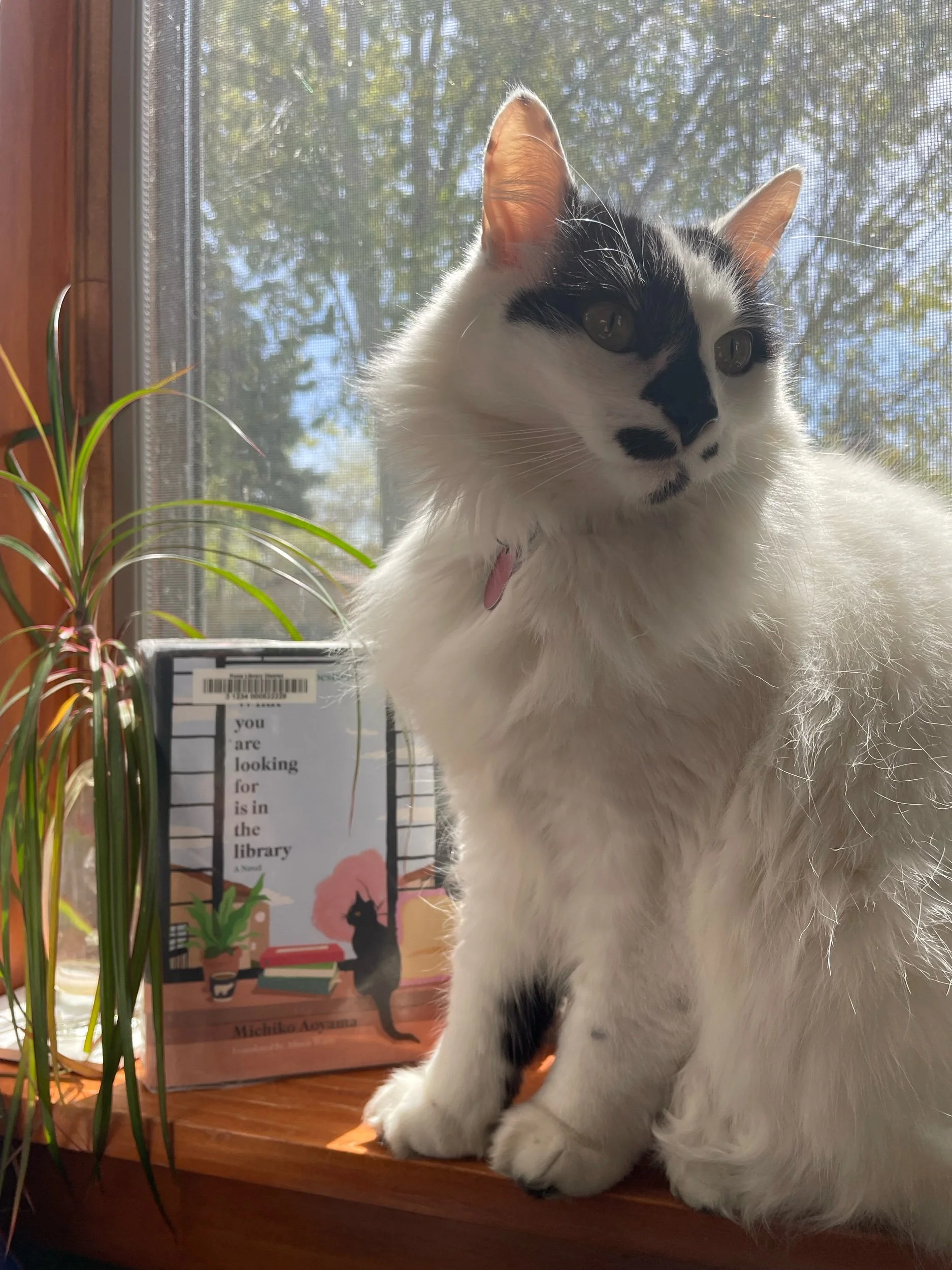The Fell
Try as we may, all of us remember the feeling during Covid lockdowns and quarantines when we wanted to escape the confines, climb out of our skin, anything to escape the mindless numb of every day. Sarah Moss puts flesh on those feelings in her post-pandemic novella, The Fell (2021, first American edition 2022). Coming in just under 200 pages, Moss’s latest fiction will haunt readers just as much as our own memories of COVID’s darkest days.
All of us recall the otherworldly realities at the height of COVID; that sensation of melting into one’s couch or scaling the walls or desperately bleaching every surface again and again. Moss examines the psychology of that time in The Fell. The novel is set in a village on the edge of the fell, the high, barren moor, in the Peak District of Northern England. The short work of literary fiction, alternates perspective between four characters over the course of one November evening in 2020 that stretches into morning. Readers spend time in the mind of a struggling single mother (Kate), her teenage son (Matt), her kind widower neighbor (Alice), and a search and rescue worker who also happens to be the single father of a teenage daughter (Rob). In the span of fictional hours, readers observe their attempts to survive as they grapple with the challenges of life in the modern age, as well as the challenges specific to Covid lockdowns.
Told in alternative perspectives (similar to the style employed in Summerwater, see previous review) Moss creates community even while investigating isolation. Her close third person point of view allows readers to enter her characters inner lives with stream of consciousness writing reminiscent, for me, of Woolf or Joyce. I was particularly reminded of the Calypso episode in Ulysses as first Kate then Matt bustle about the kitchen with the cat wandering through. This stream of consciousness style may take some acclimating for some readers, but its realism is hair-raisingly poignant.
The Fell includes themes of danger, safety, human connection and need, and the long string of military metaphors we use in the face of any threat, COVID included. It also investigates our relationship with the natural world and the deep-seated compulsion many of us have to be out among its wilder places. In addition to the four human characters on which the novel zooms in, Moss also incorporates a number of animals. The cat accompanies Matt through a long night when no human can. And then there is the raven with its Celtic folkloric connections to death and the triple goddess. Raven guides, tricks, protects, and/or heckles Kate on the moor depending on your reading. The Morrigan, the triple goddess, would take the form of a raven over battles in old Celtic stories. Does the goddess watch over Kate? Does she speak to her? Or is the raven simply a raven like the many who make the high moorland, the fell, their home? Moss’s slim novel leaves the reader with no shortage of questions to ask and hard truths to face.
Having come through the years of COVID quarantines and public health restrictions in the relatively rural and wildly independent space of the American West, I did not share the experiences of severe lockdown reflected in The Fell. That said, I know readers in much of the rest of the Anglophone world did. As I read The Fell, I reflected on my psychological experiences and anxieties around the pandemic, even without extreme lockdowns. In this small book, Moss brilliantly shines a light into the dark room our collective recent past. The Fell demands readers consider where the line between individual health (physical and mental) and public health reasonably lies, as well as the imperative many of us feel to walk in wild spaces.
Bibliography:
Moss, Sarah. The Fell. Farrah, Strauss and Giroux: 2021.
“Mythology of the Raven.” Retrieved from https://treesforlife.org.uk/into-the-forest/trees-plants-animals/birds/raven/#:~:text=The%20Irish%20goddess%20Morrighan%20had,and%20feasted%20on%20men's%20bodies.
A Few Great Passages:
“She would have thought, before, that whatever might happen abroad this isn't the kind of country where it could ever be illegal to walk the hills, until the shock of that March day the texts came, there are new rules in force, go home now and stay indoors - how does the government have your phone number? But you don't have to look all that far back, the mass trespass and the song, to see that the authorities have never liked to have commoners wandering the land instead of getting and selling” (27).
“[I]t’s just so typical of humanity in the twenty-first century and it won't end there, once it's in the mink it will be the badgers and otters, those that survive the TB cull and the pesticides and gamekeepers and cars and there's no point in thinking like this, she can't do anything about any of it. Pull yourself together. If she could go for a walk, get up onto the moors - no painting, anyway, not unless she makes her own paint, which is a thought, people must have done, mustn't they” (33).
“She wishes sometimes you could just sign a disclaimer, like a Do Not Resuscitate order, promising that if you get sick you won't go to hospital, won't make any demands or expect any help, and in exchange you could take your own risks, decide how much you want to stay alive and at what cost to your sanity, but of course that's not how it works, it's not that the government care if you feel ill or die cheaply at home, it's that they care if you pass the illness to people who will die expensively in hospital so it's no use individuals trying to opt out, we're biologically connected to each other and anyway that's not how society works, she knows that, you can't sign out of community and it's not that shed usually want to” (37-38).
“There's no point in thinking about how this will ever end. All the other plagues ended, sooner or later, though most of them went away as well as coming back, some years, some decades, better than others, and people lived and loved and built houses and planted trees and made food and clothes and - and stained glass, travelled, even, made music and put on plays. Ring a ring o' roses. Smallpox, typhoid, cholera: probably more people have lived through epidemics than not over the last few centuries. And of course life won't go back to the way it was, it never does and rarely should. There will be holes in the children's education, a generation that's forgotten or never learnt how to go to a party, people of all ages who won't forget to be afraid to leave the house, to be afraid of other people, afraid to touch or dance or sing, to travel, to try on clothes - whisht, she thinks again, hush now. Walk” (60).
“A person can doubtless live like this indefinitely, the background murmur of dread only a little louder week by week, month by month - well, that's obvious, isn't it, people don't die of dread, nor even imprisonment, or at least they do but not directly from being shut away, from lack of access to healthcare and poor diet and suicide and violence and many of the reasons that put them there in the first place, shame on her for comparing her comfy house, mortgage paid off, with her kind neighbours and her garden, to a prison” (99-100).
“[L]et us give thanks for our pure blind luck as well as our warm beds and safe houses, though the problem with giving thanks for your own luck is that you're also giving thanks that the misfortune landed on someone else. Keep a gratitude journal, says Kathleen, it's a big help, reminds you how lucky you are, and Alice thought grateful to whom, exactly, and for what, that my very ordinary virtues have been disproportionately rewarded in this world while worse things happen to better people?” (101-102).
“If resisting isn't another military metaphor, fighting the maddening times, but if there's a war on hand probably better to be a member of the resistance than the one with the big guns, you'll probably like yourself better at the end, if you see the end. What nonsense. Do something” (130).
“No, he said, I'm no hero, that's not it, you don't understand. I do it because I can, because we've all made bloody stupid mistakes in our time only mostly we've got away with it, so far. I do it because we all need saving from the consequences of our own idiocy once in a while. I do it because I'm not a hero, none of us is a hero” (168).






